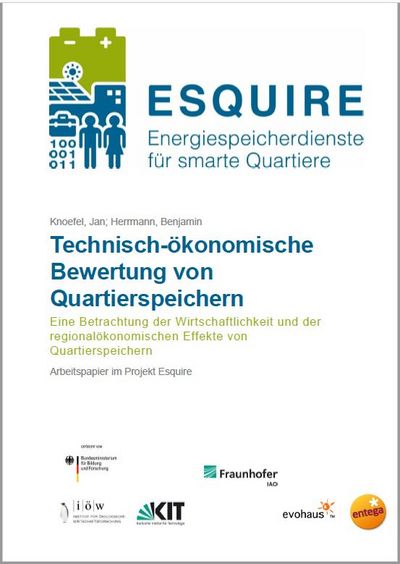Techno-economical evaluation of community energy storage An assessment of the economic viability and regional economic effects of community energy storage
The generation and consumption of energy can be decoupled by community energy storage (CES). Therefore, CES can play an important role in the future energy system in order to meet the challenges posed by fluctuating electricity generation from renewable energies. However, an important condition for the further spread of CES is its economic viability.
Currently, battery storage systems are mainly used in private homes and for optimizing self-consumption. On the one hand, this is due to the desire for self-sufficiency, and on the other hand, is sotring self-produced electricity an important source of income. This is because the revenues that can be generated from the sale of electricity are significantly lower than the costs for electricity that has to be drawn from the grid.
In this paper, it is shown that more self-produced electricity can be consumed in the community through a CES, compared to many small home storages. Nevertheless, this work confirms earlier findings that neither CES nor home storages can currently be operated profitable. However, the knowledge gained about self-consumption rates can be used in future calculations on the economic viability of PV storage systems in changed market conditions.
In order to create profitable business model, the CES can generate further revenues in addition to optimizing self-consumption through grid and system services, such as the provision of balancing energy or the capping of peak loads. In this case, one speaks of a multi-use. This paper shows that this can also be done without a major reduction in the self-consumption and self-sufficiency quotas.
In addition this study also examines the extent to which the storage can contribute to regional value creation.



